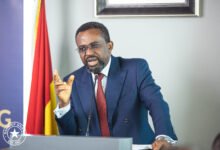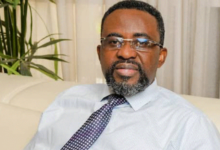Ghana must embrace Islamic Banking and Finance – Prof. Gatsi
Ghana must embrace Islamic Banking and Finance to raise money to fund key infrastructural projects in order to accelerate the development of the country.
The Dean of the School of Business of the University of Cape Coast, Professor John Gartchie Gatsi, who made the call in an interview with the this paper, said Islamic Banking which operates under an interest free model could go a long way to facilitate the development of the country.
Islamic Banking operates under an interest free model and does not charge interest rate on loans unlike the traditional banking.
To this end, he said, the next NDC government must begin the process in 2025 to introduce Islamic Banking and register the country to become a member of the Islamic Development Bank.
He explained that all the countries in West Africa were members of the Islamic Development Bank and had introduced Islamic banking in their countries, providing alternative source of funding for roads, rails, housing, agriculture and modernisation, adding that the bank provided special finances directed towards financing policies and projects to reduce different types of poverty and women development.
Moreover, he indicated that the introduction of Islamic banking and finance in those countries provided financial diversity, inclusion and choices for entrepreneurs and households.
Ghana, Prof. Gatsi said could also adopt Islamic Banking to seek funds and develop the economy, and stated that the country could tap the expertise of foreign banks operating in Ghana such as Zenith, Stanbic and Standard Chartered have expertise in Islamic banking and capital markets from Nigeria, South Africa and the United Kingdom.
That, he noted, would help the country to achieve broader inclusion “If the NDC fulfils the manifesto promise to Ghanaians.”
“The nature of Islamic Banking and finance is such that it is examinable by all accounting and finance professional bodies globally and in Ghana such as CIMA, ICAG and ACCA thereby providing basic human capital readiness for the takeoff of Islamic banking in Ghana,” Prof. Gatsi stated.
According to him, Islamic banking and finance operations were not at variance with the traditional banking and had no back crash with global conventional financial institutions such the International Monetary Fund (IMF), World Bank and African Development Bank as it has been embraced by these institutions with the IMF and World Bank facilitating the issuance of Islamic bonds and helping to design appropriate regulations.
Just as Ghana is a member of the World Bank Group, the IMF and the African Development Bank, and thus receives development finance, fiscal management and technical supports in the management of the economy, Prof. Gatsi membership of Islamic Development Bank would provide added source of development funding in the provision of infrastructure and growth oriented programmes,” Prof. Gatsi stated.
“Islamic banks, participating in Islamic bonds to finance private and public projects, to scale up economic growth and development are the key opportunities awaiting Ghana from 2025 if the NDC implements the proposal in its 2024 manifesto,” the Dean of School of Business of University of Cape Coast, stated.
BY KINGSLEY ASARE




